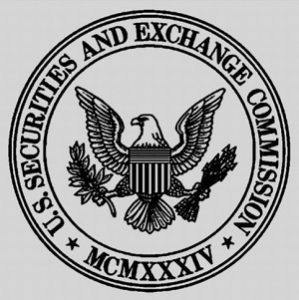 The Securities and Exchange Commission (SEC) charged the Chief Executive Officer (CEO) of a fintech start-up with fraud.
The Securities and Exchange Commission (SEC) charged the Chief Executive Officer (CEO) of a fintech start-up with fraud.
The SEC made the announcement against Michael Liberty, 57 and the CEO of the fintech start-up Mozido, along with several alleged accomplices.
“The Securities and Exchange Commission has charged Michael Liberty, the founder of the fintech startup now known as Mozido Inc., with a scheme to trick hundreds of investors into investing in his shell companies instead of Mozido. Liberty and his accomplices then allegedly stole most of the more than $48 million raised to fund a lavish lifestyle that included private jet flights, multi-million dollar residences, expensive cars, and movie production ventures.
“The SEC’s complaint, filed March 30, 2018, alleges that Liberty, his wife Brittany Liberty, his attorney George Marcus, his cousin Richard Liberty, and his cousin’s friend Paul Hess induced investors to purchase unregistered interests in shell companies controlled by Michael Liberty that supposedly owned transferrable interests in Mozido. In reality, the shell companies either did not own or were not permitted to transfer interests in the company.
“The SEC also alleges that Michael Liberty and his accomplices lied to investors about Mozido’s valuation and finances, the amount Michael Liberty had personally invested in Mozido, and the use of their funds. According to the complaint, Michael Liberty and his accomplices later orchestrated a series of transactions in which they used investors’ own money to heavily dilute their interests and duped investors into trading securities for those worth more than 90 percent less. “
According to the SEC complaint, Mozido used shell companies to underwrite and sell promissory notes for companies which did nothing.
“Defendants’ fraudulent scheme centered later on Mozido, Inc., which bought all of MDO’s assets. Liberty claimed to be the founder of MDO and served as a de facto officer of MDO and Mozido, Inc. From 2010 to 2017, Liberty and his associates usedon MDO, a financial technology company (then known as Mozido LLC), and shell companies (for example, a company Liberty named ‘Mozido Invesco’) to raise money from hundreds of investors, who purchased securities in the form of promissory notes issued by the shell companies without active business operations. Liberty and his associates represented that these notes provided a vehicle for investment in MDO.”
The SEC noted later: “Defendants’ conduct involved fraud, deceit, or deliberate or reckless disregard of regulatory requirements, and resulted in substantial loss, or significant risk of substantial loss, to other persons.”
Fintech and the SEC
Fintech is a space which has numerous potential regulators, of those the SEC is only one. A 2016 article in Business Insider noted that the SEC was specifically concerned with: robo-advisors, blockchain, and Online marketplace lenders and crowdfunding platforms.
In this case, it’s interesting to note, that the fact that this is a fintech company was irrelevant to SEC’s jurisdiction.
In this case, the SEC asserted jurisdiction because they deemed the promissory notes securities, since the SEC believes they were underwritten in a fraudulent manner it took action.
 “As alleged in our complaint, these investments were sold as a chance to get in early with a seemingly promising fintech company,” said Paul Levenson, Director of the SEC’s Boston Regional Office. “The prospect of investing in a non-public start-up company may hold considerable allure, but buyers need to understand what they are buying. Unscrupulous operators make it difficult for ordinary investors to assess such ‘investment opportunities.’”
“As alleged in our complaint, these investments were sold as a chance to get in early with a seemingly promising fintech company,” said Paul Levenson, Director of the SEC’s Boston Regional Office. “The prospect of investing in a non-public start-up company may hold considerable allure, but buyers need to understand what they are buying. Unscrupulous operators make it difficult for ordinary investors to assess such ‘investment opportunities.’”
The SEC’s complaint which was filed in federal court in Maine and charges the defendants with violating the antifraud and registration provisions of the federal securities laws.
The SEC seeks a permanent ban against all defendants from the securities industry and pay back of all ill-gotten gains.









